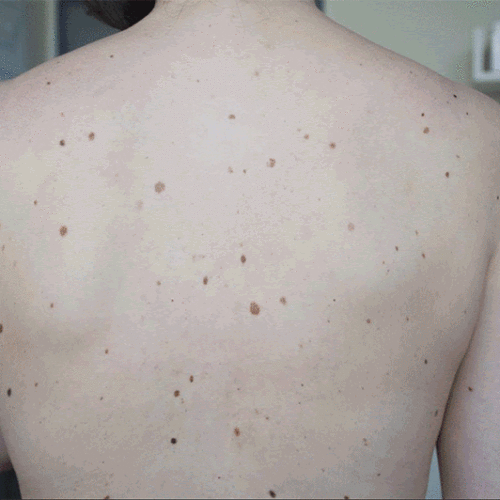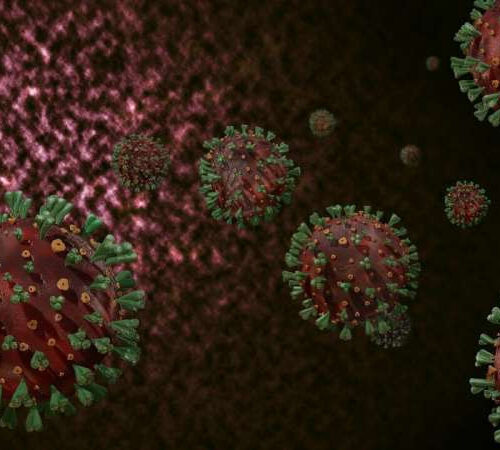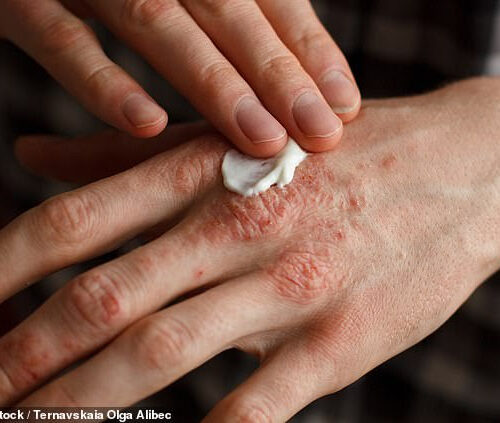APRIL 20TH, 2021 RUKMANI SRIDHARAN Melanoma, which accounts for over 70 percent of all skin cancers, occurs when pigment producing cells called melanocytes multiply uncontrollably. This cancer is typically diagnosed through visual inspection of Suspicious Pigmented Lesions (SPLs), and such early detection of lesions in a physician’s office are often life-saving. However, there are several disadvantages...
NUS researchers discover protein that causes neurological complications in HFMD
NATIONAL UNIVERSITY OF SINGAPORE, YONG LOO LIN SCHOOL OF MEDICINE Hand, Foot & Mouth Disease (HFMD) is a generally mild, contagious viral infection common in young children. In Singapore, HFMD is endemic and is most commonly caused by intestinal viruses known as coxsackieviruses and enteroviruses. While most HFMD patients experience common symptoms such as sore...
Gut’s immune response in COVID-19 may not provide efficient protection of other organs
FRONTIERS Our guts may not provide long-lasting systemic immunity from COVID-19, which is where immune cells circulate through the body to provide protection to other organs, finds a new study published in Frontiers in Immunology. An analysis of blood samples from patients infected with SARS-CoV-2 revealed that immune cells circulating in the blood, which were triggered...
New biomaterial regrows blood vessels and bone, RCSI research
RCSI Scientists have developed a new biomaterial that regrows blood vessels and bone, potentially providing a single-stage approach when repairing large bone defects. The study, led by researchers from RCSI University of Medicine and Health Sciences and SFI AMBER Centre, is published in the Journal of Controlled Release. Previous RCSI-led research had found that activating a mechanosensitive gene,...
New study reveal targeted therapy working in early breast cancer
THE UNIVERSITY OF BERGEN Targeted therapy in early stages of breast cancer can pave the way for a notable higher success rate, shows a study from the University of Bergen, Norway (UiB). PARP (Poly (ADP-ribose) polymerase) inhibitors represent an established targeted therapy for multiple cancer types, including cancers of the prostate, ovary and rare cases...
New findings suggest organ tissues become increasingly immune throughout life
UNIVERSITY OF MINNESOTA MEDICAL SCHOOL MINNEAPOLIS/ST.PAUL (04/20/2021) — University of Minnesota Medical School researchers have offered new ways to think about the immune system thanks to a recent study published in Nature. Their research, which indicates organ tissues become increasingly immune throughout life, may begin to alter fundamental ideas regarding the rules of vaccination and the immune system’s function...
Specialized technique captures unique protein structures in neuropathy disorders
by Morgan Sherburne, University of Michigan Credit: Pixabay/CC0 Public Domain Charcot Marie Tooth and Dejerine-Sottas syndrome are groups of diseases that involve the breakdown of the myelin sheath covering nerve axons. As this myelin sheath breaks down, people who have these disorders suffer nerve damage in the arms and legs—those with Dejerine-Sottas disease may never walk...
Latest remedy for eczema — rub bacteria on to your skin!
By RACHEL ELLIS FOR THE DAILY MAIL PUBLISHED: 20:29 EDT, 19 April 2021 | UPDATED: 20:32 EDT, 19 April 2021 Scientists have developed an unlikely treatment for the dry skin condition eczema — a cream that is packed with human skin bacteria. Studies suggest a healthy strain of skin bacteria can effectively treat flare-ups in people with the most common...
An anti-obesity pill that turns off hunger could be on the horizon
by Study Finds REHOVOT, Israel — For people battling obesity, it’s one thing to lose weight, but how do you stop feeling hungry? A new study is revealing how a unique “switch” in the brain controls when people feel full. Researchers say the findings may soon lead to an anti-obesity pill that turns off hunger. Scientists from the...
Once-a-week insulin treatment could be game-changing for patients with diabetes
UT SOUTHWESTERN MEDICAL CENTER IMAGE: Treating people with Type 2 diabetes with a new once-a-week injectable insulin therapy proved to be safe and as effective as daily insulin injections, according to the results of two international clinical trials published online today in Diabetes Care. The studies suggest that the once-weekly treatment could provide a convenient...





